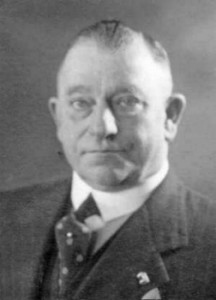
|
"... These lines are especially for you, my darling Annele. I send you my best wishes; the kind of wishes which a father has in mind for his good child and the special wish that all of us can be together again in the near future. I am glad that at least the both of you can be together and I am very sorry that I can only think of you on your 20th birthday in the distance. After all we must be glad that we are with good people and that we are in good health." |
Paul Strauss wrote these lines in November 1939. At that time the hops dealer from Nuremberg lived in Brussels, his wife Zerline and daughter Annemarie he had sent to England. Almost sixty years later his daughter Annemarie outlined the fate of her family in a report to NCA.

Paul Strauss was born in Nuremberg on August 9, 1879 as the only son of Hermann and Lina Strauss. He went to highschool in Nuremberg and was a soldier in World War I 1914/18.
His father founded a hops trade by the name "Hermann Strauss jun." in which my father succeeded him.
The office and the private apartment of my parents and me (their only child) were at Bahnhofstrasse 35. In 1929 we moved into a villa in the proximity of the Luitpoldhain (Hertastrasse 8).
The business went very well. Paul Strauss worked at least 10 hours every day and traveled 4 months a year. He bought the hops in Germany and sold it to German breweries, too, but mainly to breweries in Belgium and Holland. He brought a lot of foreign currency to Germany. Because the Hitler regime also needed foreign currency at that time, my father had no difficulties in the business until 1938/39 although he was a Jew. Then he had to sell his business to an "Aryan" company by the name of Gruber & Breitschaft.
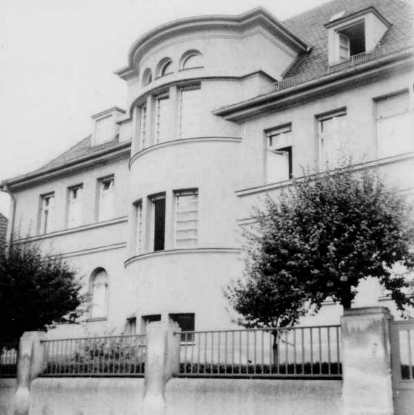
In April 1939 Paul Strauss managed to move to Belgium because he had many customers there. The permission was only for one person, therefore my mother and I went to England.
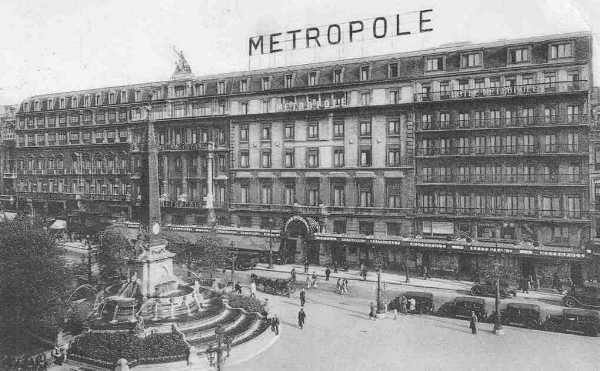
My father worked in Belgium but we heard nothing more of him after the German troops had occupied Belgium. We got this information from the Red Cross and the "Aide Aux Israélites De La Guerre" (help for Jewish war victims) after the war: Paul Strauss had been arrested and deported as No. 1031 of transport XX from Malines to Auschwitz April 19, 1943. He never came back.
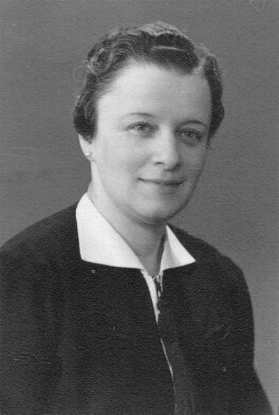
Zerline (Lili) Plaut of Mainz (born July 9, 1896) married Paul Strauss of Nuremberg February 25, 1919 and from then on lived in Nuremberg ... They had one daughter (Annemarie). Paul Strauss was the owner of a hops trade. Mainly his customers were breweries in Belgium and Holland. The export business went well, also within the first years of the Hitler regime. Then, in 1938/39 Paul Strauss had to sell the business to an "Aryan" company and the house in Hertastrasse was handed over to the NSV (Nazi Public Welfare Service). Paul Strauss got the permission to go to Belgium. The permission however was for him only.
Lili's daughter had emigrated to England in January 1939. One only could get the permission to live in England if one was willing to be a domestic. Annemarie was a servant in Sheffield with a family and she managed to acquire another job for her mother. Thus Lili Strauss moved to Sheffield in July 1939, too. Later she was housekeeper for a sister in London.
For a couple of years she moved to Macclesfield (a little town right in the middle of England) and lived there with her daughter in a room. Both of them worked in dress factories. After the German troops had occupied Belgium, she heard nothing more of her husband. After the war she heard from the Red Cross, that her husband Paul Strauss was deported from Belgium to Auschwitz. This of course was the worst what could happen to Lili Strauss. She was terribly sad, however she was very brave mainly because of her daughter.
She was naturalized in England and got a position for housemother in a big orphanage. She worked there many years, then she retired. She got a pension from Germany.
For reasons of health she had to spend the last years of her life in an elder care home. She deceased in 1983.
Annemarie Strauss, born November 27, 1919 in Nuremberg (Bahnhofstrasse 35) was the only child of Paul and Lili Strauss. I went to the Labenwolfschule (Girls' High School) and was a good student. I liked school very much and had many Christian and Jewish friends. I was so sorry, that by law I had to leave high school in 1936.
For some time I worked with my father in his office, studied French (in Switzerland) and English (in England). In 1938 my parents sent me to a business school in Hamburg. I learned a lot there but after 4 months I got a summons by the Gestapo. They said to me, that there were enough Jews in Hamburg already and that I had to leave the town within a week - so I went back to Nuremberg.
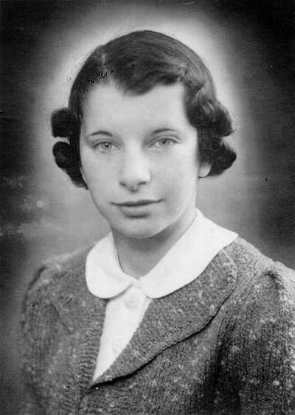
After the "Kristallnacht" November 9, 1938 my parents decided that I shall emigrate. - The only possibility for me was to go to England as a domestic. England allowed many Jewish children to enter this country but I was 19 years of age already. I could get only the permission to live in England, if I obliged me to work as a domestic. So I went to a family in Sheffield in January 1939. My mother followed me in July, also as a domestic.
I stayed in Sheffield for 15 months, then I learned that due to the war refugees could get the permission to work as seamstresses in factories. I got work in the eastern part of London in a dress factory. During the air-raids the factory was closed temporarily in fall 1940. I hadn't any money and worked as a cleaning woman. After a couple of weeks the owners opened a second factory in a little town outside of London and I decided to work there again. The English female workers in London and in Macclesfield were always very nice to me.
In the course of time I could sew better and more fastly and I earned more.
Finally I got the permission to work in the office, first as shorthand typist, then as bookkeeper. I became the private secretary of the director after a couple of years.
In January 1947 I married an Englishman and I have two children.
|
JewishGen, Inc. makes no representations regarding the accuracy of
the translation. The reader may wish to refer to the original material
for verification.
JewishGen is not responsible for inaccuracies or omissions in the original work and cannot rewrite or edit the text to correct inaccuracies and/or omissions.
Our mission is to produce a translation of the original work and we cannot verify the accuracy of statements or alter facts cited.
 Leaving Nuremberg
Leaving Nuremberg
 Yizkor Book Project
Yizkor Book Project
 JewishGen Home Page
JewishGen Home Page
Copyright © 1999-2024 by JewishGen, Inc.
Updated 21 June 2003 by LA